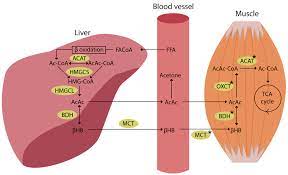Wellhealthorganic.com:11-health-benefits-and-side-effects-of-olives-benefits-of-olives

Olives wellhealthorganic.com:11-health-benefits-and-side-effects-of-olives-benefits-of-olives have been a staple in Mediterranean cuisine for thousands of years, but did you know they also have surprising health benefits? These small, flavorful fruits are packed with nutrients that can improve heart health and reduce the risk of chronic diseases. Whether you love them as a snack or use them to add flavor to your favorite dishes, olives are definitely worth adding to your diet. In this article, we’ll explore the many benefits of olives and share some tips for incorporating them into your meals. So grab a handful of olives and read on to discover why these little powerhouses should be part of your healthy eating plan!
What are olives and what do they contain?
Olives are small fruits that grow on olive trees, which are primarily found in the Mediterranean region. They come in different varieties and colors, from black to green and everything in between. Olives contain a variety of nutrients that can benefit your health.
One of the most notable components of olives is their high fat content, which consists mainly of healthy monounsaturated fats. These types of fats have been linked to improved heart health and lower risk of chronic diseases such as diabetes and cancer.
In addition to healthy fats, olives also contain antioxidants like vitamin E and polyphenols. Antioxidants help protect your body against damage caused by harmful molecules called free radicals.
Olives are also a good source of iron, fiber, copper, and calcium. Iron is essential for transporting oxygen throughout your body while fiber promotes digestive health. Copper helps with energy production while calcium supports strong bones.
Whether you prefer them stuffed with cheese or sliced on top of pizza, there’s no denying that olives offer an array of nutritional benefits that make them worth including in your diet!
The health benefits of olives
Olives are not only delicious, but they also offer a range of health benefits. These small fruits contain healthy monounsaturated fats that can help reduce inflammation and lower the risk of heart disease.
Additionally, olives have been shown to improve cognitive function and memory through their high levels of polyphenols. These compounds are known for their antioxidant properties that protect cells from damage caused by free radicals.
Olives are also rich in iron, which plays an essential role in carrying oxygen throughout the body. This mineral is particularly important for women who may be at risk for iron deficiency due to menstruation.
Moreover, olives are a good source of fiber, which promotes regular bowel movements and helps maintain digestive health. Fiber can also promote feelings of fullness, making it easier to stick to a healthy diet plan.
Research has suggested that consuming olives regularly may decrease the risk of certain types of cancer such as breast cancer due to its anti-inflammatory effects on the body.
Incorporating olives into your diet can provide numerous health benefits. So why not add them as part of your favorite dishes or enjoy them as a snack?
How to incorporate olives into your diet
Olives are a versatile food that can be incorporated into many different dishes to add flavor and nutrition. Here are some easy ways to include olives in your diet:
1. Snack on olives: Olives make a great snack, especially when paired with cheese or crackers.
2. Add them to salads: Tossing olives into your salad is an easy way to add flavor and texture.
3. Use them as pizza toppings: Kalamata olives, wellhealthorganic.com:11-health-benefits-and-side-effects-of-olives-benefits-of-olives green olives, and black olives all make great toppings for pizzas.
4. Make tapenade: A classic olive spread made from mashed-up kalamata or green olives, capers, garlic, lemon juice and olive oil is perfect for spreading on bread or crackers.
5. Add them to pasta dishes: Adding chopped up black or green pitted olives over spaghetti with tomato sauce gives you an extra burst of Mediterranean flavors!
6. Incorporate them into sauces/dips – Using pureed black/green pitted olive paste makes a delicious dipping sauce served alongside roasted vegetables or toasted breads
7.
Reinvent the breakfast toast- Toasting fresh sourdough topped with ricotta cheese followed by sliced tomatoes then finished off with sliced kalamata makes it the perfect start of day meal!
Incorporating these small changes will elevate wellhealthorganic.com:11-health-benefits-and-side-effects-of-olives-benefits-of-olives any meal giving not only bold flavors but also essential vitamins like vitamin E which helps improve skin health!
The best time of year to eat olives
Olives are a versatile food that can be enjoyed year-round, but there is definitely an optimal time of year to indulge in these delicious fruits. The best time to eat olives is during the late fall and winter months when they are at peak ripeness and flavor.
During the colder months, olives have had more time on the tree to develop their rich and complex tastes. This means you can expect more depth from each bite and a greater range of flavors than you might find in other seasons.
Additionally, many people associate olives with holiday feasts because they pair so well with traditional dishes like roasted meats, cheese boards, and wellhealthorganic.com:11-health-benefits-and-side-effects-of-olives-benefits-of-olives antipasto platters. There’s something special about savoring a plate full of briny olives while surrounded by loved ones during the festive season.
Of course, this doesn’t mean you should avoid eating olives in other seasons altogether! Olives make for a great snack or addition to meals any time of year. But if you’re looking for maximum enjoyment from your olive consumption, try stocking up during fall and winter months when these tasty treats are truly at their best.
Conclusion
Olives are a delicious and nutritious addition to wellhealthorganic.com:11-health-benefits-and-side-effects-of-olives-benefits-of-olives any diet. Not only do they add a burst of flavor to your meals, but they also have numerous health benefits that can help improve heart health and overall well-being.
By incorporating olives into your daily meals or snacking on them as a healthy snack option, you can reap the benefits of their high nutrient content and antioxidant properties. Whether you prefer green or black olives, there are plenty of ways to enjoy this versatile fruit.
So go ahead and try adding some olives to your next salad, pasta dish or charcuterie board! Your taste buds (and heart) will thank you for it.




